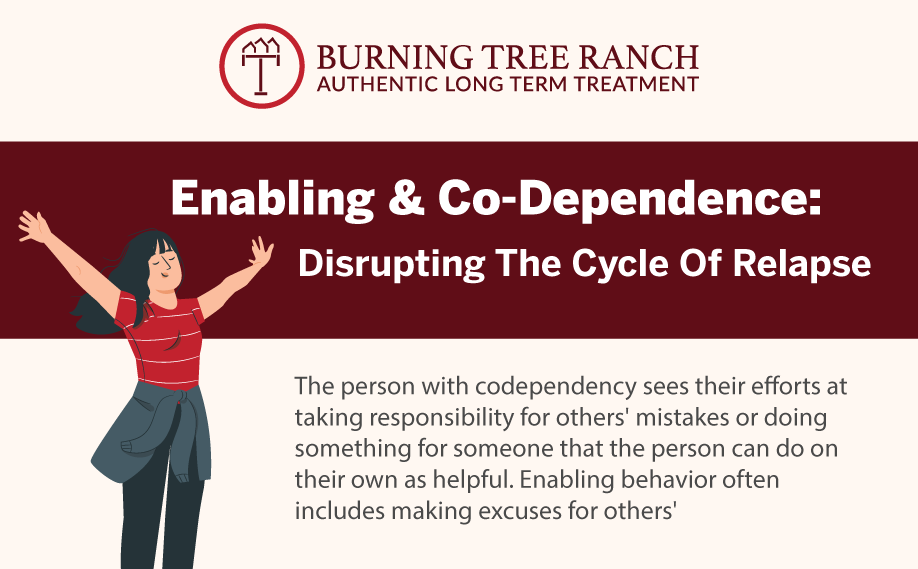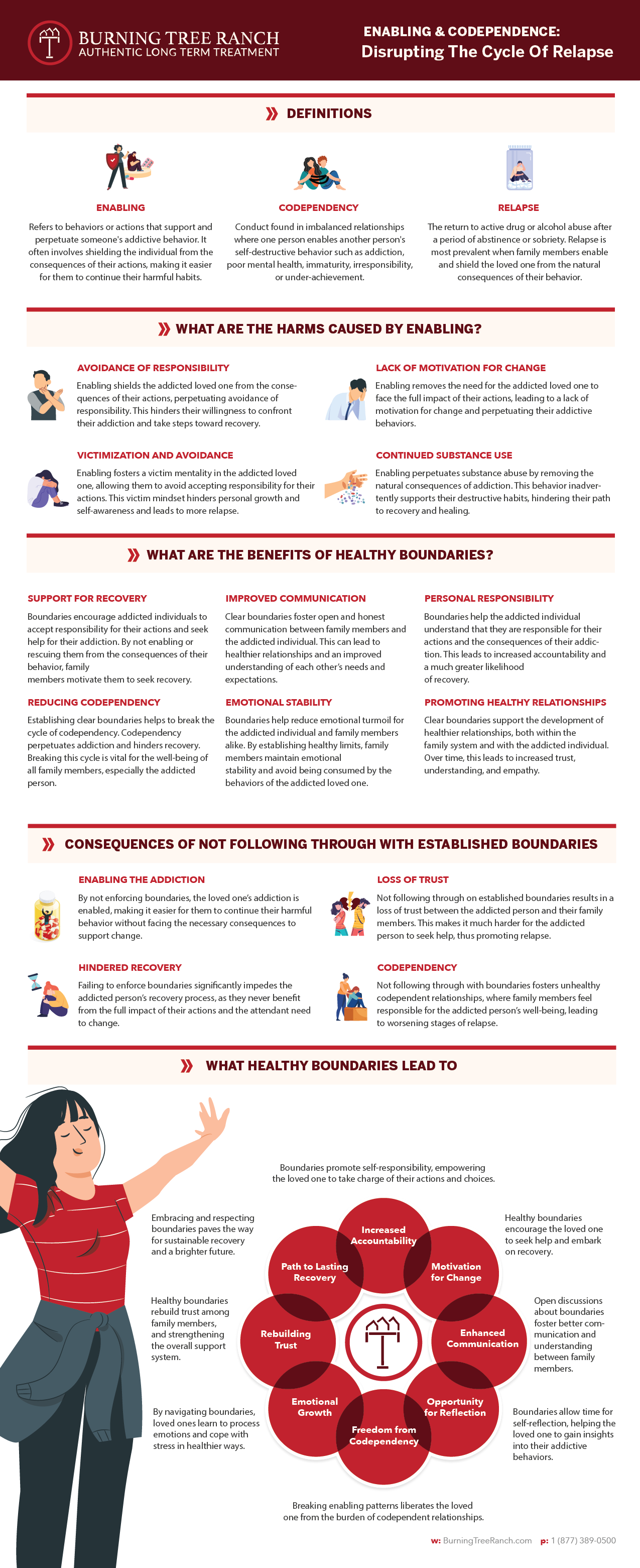Learn more about enabling & dependency
- Enabling: Enabling refers to behaviors or actions that support and perpetuate someone's addictive behavior. It often involves shielding the individual from the consequences of their actions, making it easier for them to continue their harmful habits.
- Codependency: Conduct found in imbalanced relationships where one person enables another person's self-destructive behavior, such as addiction, poor mental health, immaturity, irresponsibility, or underachievement.
- Relapse: The return to active drug or alcohol abuse after abstinence or sobriety. Relapse is most prevalent when family members enable and shield the loved one from the natural consequences of their behavior.
What Are The Benefits Of Healthy Boundaries?

Support For Recovery
Improved Communication
Establishing Personal Responsibility
Boundaries help the addicted individual understand that they are responsible for their actions and the consequences of their addiction. This leads to increased accountability and a much greater likelihood of recovery.
Reducing Codependency
Emotional Stability
Boundaries help reduce emotional turmoil for the addicted individual and family members alike. By establishing healthy limits, family members maintain emotional stability and avoid being consumed by the behaviors of the addicted loved one.
Promoting Healthy Relationships
Clear boundaries support the development of healthier relationships, both within the family system and with the addicted individual. Over time, this leads to increased trust, understanding, and empathy.
What Are The Harms Caused by Enabling?

Enabling shields the addicted loved one from the consequences of their actions, perpetuating avoidance of responsibility. This hinders their willingness to confront their addiction and take steps toward recovery.
Enabling removes the need for the addicted loved one to face the full impact of their actions, leading to a lack of motivation for change and perpetuating their addictive behaviors.
Enabling fosters a victim mentality in the addicted loved one, allowing them to avoid accepting responsibility for their actions. This victim mindset hinders personal growth and self-awareness and leads to more relapse.
Enabling perpetuates substance abuse by removing the natural consequences of addiction. This behavior inadvertently supports their destructive habits, hindering their path to recovery and healing.
What Are The Consequences of Not Following Through With Established Boundaries?

Enabling the Addiction: By not enforcing boundaries, the loved one’s addiction is enabled, making it easier for them to continue their harmful behavior without facing the necessary consequences to support change.
Loss of Trust: Not following through on established boundaries results in a loss of trust between the addicted person and their family members. This makes it much harder for the addicted person to seek help, thus promoting relapse.
Hindered Recovery: Failing to enforce boundaries significantly impedes the addicted person’s recovery process, as they never benefit from the full impact of their actions and the attendant need to change.
Codependency: Not following through with boundaries fosters unhealthy codependent relationships, where family members feel responsible for the addicted person’s well-being, leading to worsening stages of relapse.
What Do Healthy Boundaries Lead To?
Boundaries promote self-responsibility, empowering the loved one to take charge of their actions and choices.
Open discussions about boundaries foster better communication and understanding between family members.
Boundaries allow time for self-reflection, helping the loved one to gain insights into their addictive behaviors.
Breaking enabling patterns liberates the loved one from the burden of codependent relationships.
By navigating boundaries, loved ones learn to process emotions and cope with stress more healthily.
Healthy boundaries rebuild trust among family members, strengthening the support system.
Embracing and respecting boundaries paves the way for sustainable recovery and a brighter future.
Fast Facts about Burning Tree Ranch
- 8-14 Months of Residential Inpatient Care
- One year of Specialized Aftercare & Transitional Living
- Long-Term, Progress-Based Mental Health, and Chronic Relapse Addiction Treatment
- Unique Focus on Treating Personality and Mood Disorders
- Clinical Emphasis on Treating Anxiety, Depression, ADHD, Trauma, and Bipolar Disorder
- Trauma-Informed Care Featuring EMDR-Trained Therapists
Evidence-Based Therapeutic Interventions:

- Cognitive Behavioral Therapy (CBT)
- Acceptance and Commitment Therapy (ACT)
- Dialectical Behavior Therapy (DBT)
- Eye Movement Desensitization and Reprocessing (EMDR)



